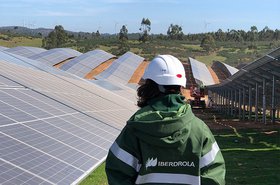If you or I got caught flytipping (illegally dumping) toxic trash, and damaging property, we'd be embarrassed. We'd be mortified. In fact, I hope we'd never do such a thing in the first place.
It's a different story for big corporations. When their bad environmental behavior comes to light, they have a whole other playbook, that involves evasions, excuses, and paying researchers to dispute the evidence, or other researchers to change the subject. If it comes to the point, they will pay the minimum reparation, and they will try to do it in secret. They will appeal against any legal rulings that require them to change their behavior. Then, when they're really up against the ropes, they will make a big show of any restorative actions that are forced on them, and tell us what great environmental champions they are.
Don't ever expect them to apologize. For anything at all.
Sticking to their story
Take 3M. The world is bracing for a shortage of Novec and Fluorinert, two coolant fluids made by the Minnesota-based sticky-notes-and-other-useful-stuff giant. The reason for this shortage is that 3M's factory in Zwijndrecht, Belgium, has for decades dumped harmful chemicals into local water and soil, until levels of poisons in locals' bloodstream were hundreds of times the EU's safe limits.
The pollution involved PFOS (Perfluorooctanesulfonic acid), a key ingredient of the Scotchguard fabric protection product, and in firefighting foams. PFOS is linked to many illnesses, hitting the liver, thyroid, and reproductive systems. Along with other polyfluoroalkyl substances (PFAS), it's a "forever chemical." meaning it lingers in the environment - and in the systems of humans.
The toxic effects of PFOS became known in the 1990s, but it appears 3M knew about it in the 1970s but funded research that would head off litigation. Finally, in 2000, it announced it would phase out PFOS. The chemical was produced at Zwijndrecht from 1976 to 2002.
In 2018, 3M paid Minnesota $850 million for PFOS pollution - without admitting fault - and then, nearly 20 years after it began phasing out the chemical, the extent of its pollution in Belgium came to light.
A massive government road tunnel project (the Oosterweel Link) exposed a vast scale of pollution around the factory. In 2018, 3M's next move was to sign a secret deal with Lantis, the government-owned tunnel builder, to suppress the story and dispose of the toxic soil.
Bizarrely, Lantis planned to use the contaminated dirt to build a security wall. Under Flemish law, it would be okay to do this, because the dirt would be classified as a construction material, not toxic waste.
When activists exposed that plan, the Flemish government turned on 3M and environmental authorities instructed the site to cease PFAS production
After that 3M appealed that decision, lost that appeal, and then - finally - agreed to some reparations for its actions. Typically, 3M's statement paints it as an environmental hero, and invites praise for the €571 million it is stumping up, describing it as an investment "to benefit the People of Flanders."
"This agreement is a major step forward for the People of Flanders, as well as for our operations in Zwijndrecht and our ability to serve our customers. It also reflects 3M's ongoing stewardship journey as a responsible manufacturer and our willingness to engage with communities where we live and work to chart a positive course for the future," said John Banovetz, EVP, CTO, and environmental responsibility at 3M
Describing the years of bluster and secret deals as a "stewardship journey" is a creative stretch. And many sources expect 3M's current €571 million costs to go up a great deal, as its rearguard action continues.
What does this do for tech?
It looks very much as if data centers and silicon chip making will suffer from 3M's corporate intransigence. Two coolants, Fuorinert and Novec, are crucial to the etching process used in silicon foundries, and also show up in immersion cooling tanks in data centers.
Both are PFAS chemicals, but 3M argues they are non-toxic, and incoming regulations should treat them differently.
The problem with that is 3M has no corporate credibility to make such a statement, after it spent decades trying to evade the now-proven medical risks of PFOS.
Even if these coolants are perfectly innocuous, their production has been halted for a substantial period, and any resumption can only happen under the auspices of authorities we can trust.
We are a late arrival to this story, having only become aware of it when the impact to the tech industry was revealed. But already we're noting a self-justifying and evasive tone to 3M's responses to our queries. Most recently, we've been assured that, apart from PFAS production, "everything else continues to operate as normal "
Given the history of the plant, we don't find that reassuring in the slightest - and nor should the silicon and cooling industries.





